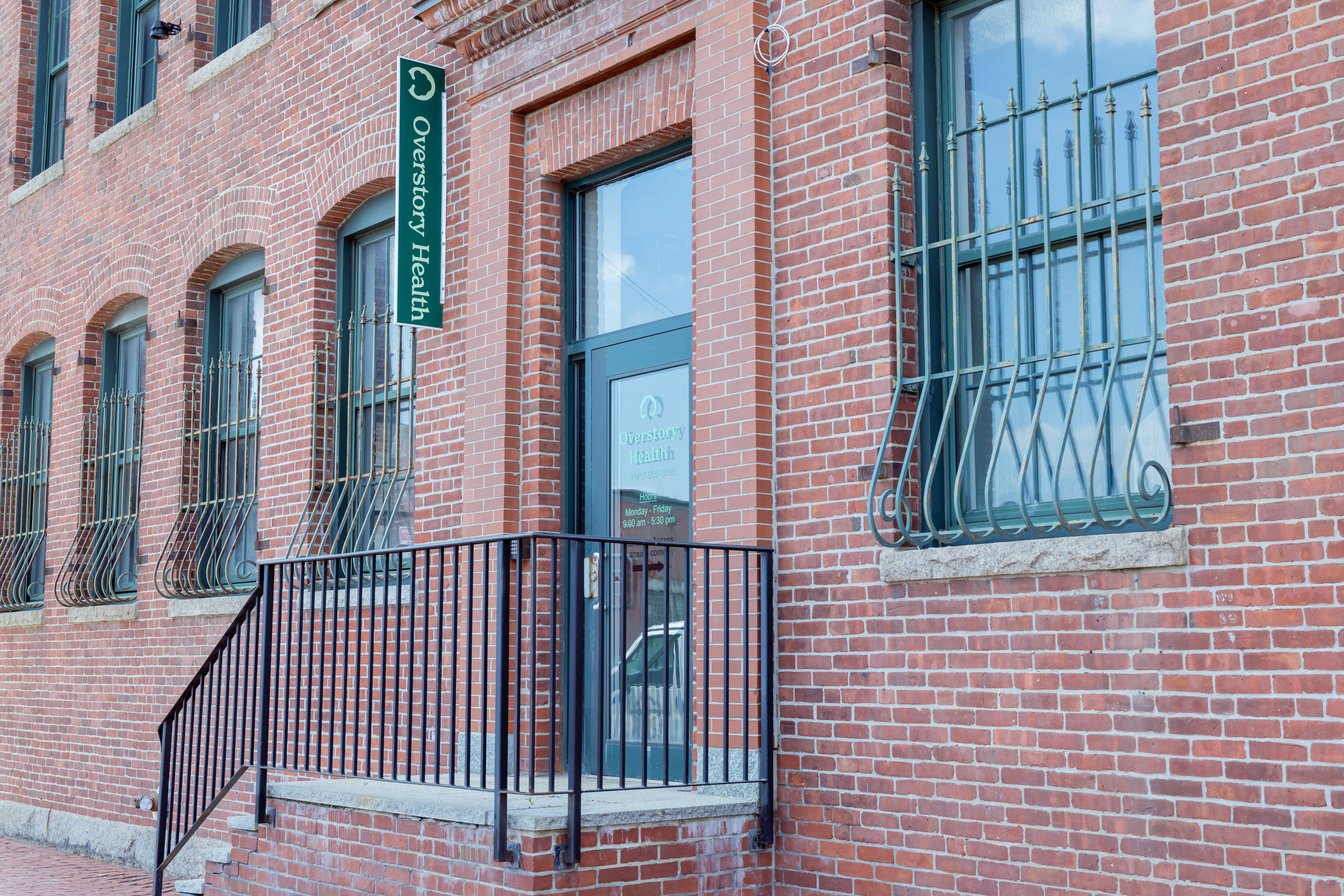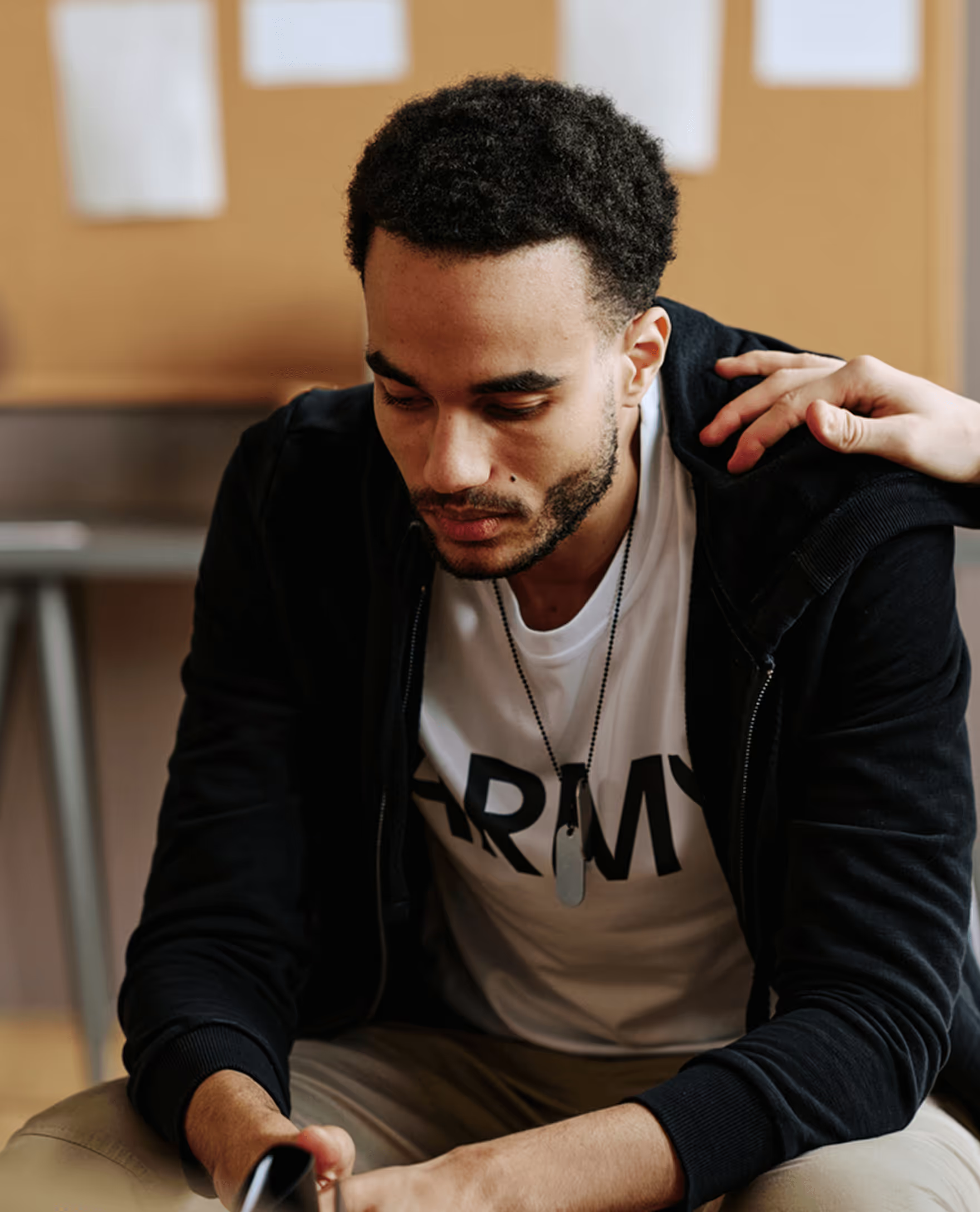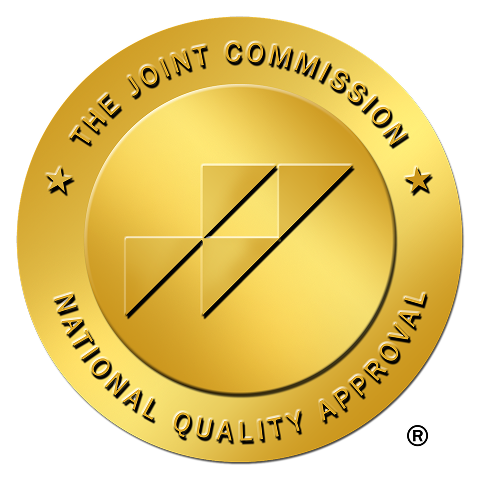Partial Hospitalization Program (PHP) in Boston, MA
Our PHP offers intensive care 5 days a week to help you regain stability. With personalized, team-based treatment, you build the skills needed to manage symptoms and support long-term recovery.

What Does Our Program Entail?
Our Partial Hospitalization Program delivers daily, structured care for individuals who need a higher level of support while remaining at home. Your treatment includes a comprehensive set of services to guide your recovery.

Group Therapy
Group therapy works with small groups of like-minded peers and focuses on education and skills development. Topics might include “How to manage depression” or “Building healthy habits to improve anxiety.” Our curriculum utilizes cognitive behavioral therapy (CBT), dialectical behavior therapy (DBT), and acceptance and commitment therapy (ACT) interventions that are evidence-based.

Individual Therapy
Individual therapy is one-on-one time with your therapist to work jointly on your challenges and potential solutions.

Medication Management
Our psychiatric team prioritizes a holistic approach to mental health, incorporating medication when it would add meaningful value to your care. We work closely with you to prescribe and adjust medications in a personalized manner.

Family Support Counseling
Sometimes it helps to incorporate family and friends in the recovery journey. Our team will work with you to identify your support system and how they can contribute to your healing.

Connection to Resources
An Overstory team member will work with you to identify areas in your personal life where you need hands-on support, whether that be hobbies, housing, food security, career and job planning, and more. Furthermore, Overstory Health will ensure continuity of care by making necessary referrals post discharge and collaborating with any current or new providers.
How To Get Started
Reach out at 617-202-3530 or fill out our intake form, and we’ll be in touch to walk you through how to get started.
During intake, we’ll check your insurance coverage, give you a cost estimate, and learn more about you to see how we can help.
Meet with a psychiatric provider within seventy-two (72) hours of starting with us.
We’ll start you in a program that best serves your needs and schedule so that you can begin your path to recovery.
A Typical Week with Overstory Health
Overstory's programming is designed with you in mind to provide intensive support to help you grow through life's challenges. See example below
- Joe discusses what he learned the previous day and how he’s feeling.
- Joe sets an individual goal for the day related to core values and individualized treatment plan.
Joe problem-solves some challenges he's having in interpersonal relationships with his peers.
- Joe participates in a classroom-style lesson on how to manage emotions.
- Joe learns a new coping skill from an evidenced-based modality such as CBT or DBT.
Joe gets a selection of options from Overstory for lunch. He picks a vegetarian option.
The group participates in an expressive arts activity where they exercise creativity to further explore their emotions and how this relates to their progress.
Joe learns about ways to improve physical symptoms of depression through behavior activation, nutrition, and sleep hygiene.
- Joe discusses what he learned the previous day and how he’s feeling.
- Joe spends the last 30-minutes of the first group with his lead case manager to discuss his social needs.
Joe and the group help Colette think through how she can better identify when she needs to ask for help.
Joe, Colette and the group role-play being assertive and setting boundaries in different situations.
Joe gets a selection of options from Overstory for lunch. He picks a vegetarian option.
The group participates in a collaborative expressive arts therapy session. Together they create a group piece of art that represents their life experiences.
Joe learns relapse prevention skills and discusses substance use and the cycle of substance use. He builds insight around his own vulnerabilities and triggers and identifies skills learned from the group to cope with urges.
- Joe engages in mindfulness exercise with the group.
- Joe checks in with his primary clinician to finalize individualized treatment plan and discuss progress towards goals.
Joe provides input into a peer’s challenges with managing their emotions
Joe role-plays different communication-based skills with a couple peers in group
Joe gets a selection of options from Overstory for lunch. He picks a vegetarian option.
The group participates in a life skills session on financial management identifying personal goals and making a “budget plan.”
Joe learns about how the brain and body adapt to different environments based on accessible resources and how to enhance his surroundings based on identified psychosocial stressors.
- Joe focuses on core values he wants to practice more and shares about ways he is trying to implement this daily.
- Joe spends the latter 30-minutes of group meeting with his psychiatric provider to review his medications.
The group talks through some challenges implementing the skills learned in the first session of the week.
Joe participates in a classroom-style learning session and shares about challenges accessing skills in moments of heightened emotions. Joe, facilitator, and peers discuss ways to improve this.
Joe gets a selection of options from Overstory for lunch. He picks a vegetarian option.
The group participates in a music therapy session. Together they design album artwork for “the soundtrack to my life” while listening to music selections chosen by group members and discussing.
Joe learns about different parenting styles and reflects on his own upbringing. Joe and peers discuss ways to respond to adverse childhood experiences that commit to current values.
- Joe discusses what he learned the previous day and how he’s feeling.
- Joe learns and practices some mindfulness breathing exercises and sensory awareness to reduce stress.
Joe and the group talk through a struggle Khalid has been having with excessive drinking.
Joe participates in a classroom-style learning session on how to prepare for stressful weekend events.
Joe gets a selection of options from Overstory for lunch. He picks a vegetarian option.
The group participates in a skills group about self-presentation. Joe engages in a job interviewing role play with peers and gives/receives feedback.
Joe learns about the effectiveness of scheduling positive experiences, trying new activities, and spending time connecting with loved ones and the last 15-minutes of the group is used to check-in on his learnings from the day and plan for the weekend.
Why Choose Overstory?
Our PHP Program Can Help You With

Visit Our Boston Facility
Address: 443 Albany Street, Boston, MA 02118
Our facility in Boston provides a calm, welcoming setting built to help you feel safe and supported. From bright, modern therapy rooms to quiet spaces for reflection, the environment is designed to help you stay focused on healing throughout IOP and PHP.
Frequently Asked Questions About PHP
Overstory offers intensive mental health programs. There are two different options, depending on individual needs.
- Intensive Outpatient Program meets 3 days per week for 3 hours a day.
- Partial Hospitalization Program meets 5 days per week for 4 hours a day.
While both programs offer intensive support, partial hospitalization program brings an increased level of care with more frequent programming and targeted support. We will help you determine which program is the best fit for you based on your needs and schedule.
Our programming is best suited for those experiencing mood disorders (including major depressive and bipolar disorder), psychotic disorders (including schizophrenia and schizoaffective disorder), personality disorders (including borderline and narcissistic personality disorder), anxiety disorders (including generalized anxiety disorder or social anxiety), self-harm, or trauma/post-traumatic stress disorder (PTSD). Feel free to contact us with any questions about the conditions we treat.
We take a multi-faceted approach to mental health care, consisting of evidence-based group therapy, individual therapy, and medication management. We also offer counseling for your family/support system so they can understand how to best help you. Moreover, Overstory works with you to identify areas in your life, like housing, food security, career help, or even trying a new hobby, where you can receive support and learn how to navigate available resources.
Group therapy and individual therapy. The types of therapeutic modalities used in individual therapy will vary depending on your unique needs, but may include Cognitive Behavioral Therapy (CBT), Dialectical Behavioral Therapy (DBT), Acceptance and Commitment Therapy (ACT), Trauma-Informed Care, mindfulness-based therapies, harm reduction, and more.
No more than 10.
While we serve the needs of many clients, we aim to organize peer groups that are supportive and relevant to your needs.
Many people in our Intensive Outpatient Program are able to continue work or school, but the Partial Hospitalization Program requires more of a time commitment. Consult with our staff to learn whether you’ll be able to maintain your work or school schedule alongside PHP.
Fill out this patient intake form here or give us a call at (617) 202-3530. We are here to support you with any questions you might have about our program or how we can help.
Overstory’s admission process is designed to ensure that our programs are a good fit and reduce administrative burden. The admissions process begins with submission of a Referral form. Afterward, Overstory’s admissions team will contact the client within 72 hours. The admissions team will validate program eligibility, verify insurance, and schedule an intake appointment with the Overstory clinical team. Once these steps are completed, an individual can be admitted to Overstory’s program in as little as 72 hours.
Yes, we work with MassHealth (Medicaid) and commercial plans.
Yes, payment plans are available for those who wish to self-pay.
For those with MassHealth (Medicaid), you’ll pay $0 out-of-pocket. Private insurance benefits will vary by plan. Contact us for a cost estimate. We also offer flexible payment plans.
While we accept clients both by referral and independently, select insurance plans may require you to have a referral. Contact us to learn more about your insurance’s requirements.
Our team will provide comprehensive assistance from the start of your treatment to make sure you have a successful transition from our program, including aftercare planning and ongoing support.
Yes, your care team will help you transition between programs based on your progress and needs.




















